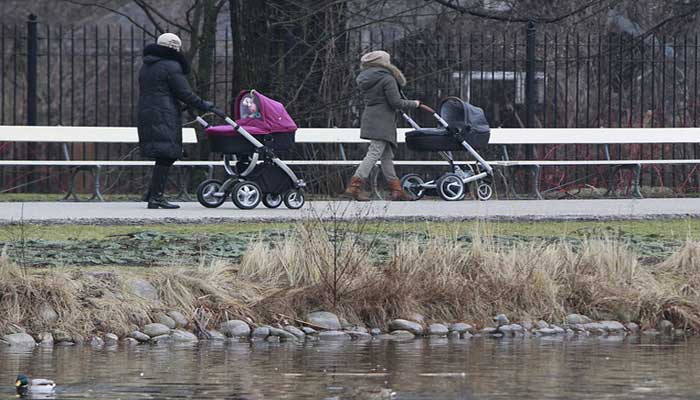Poland right-wing govt´s allowance boosts birthrate
The EU country of 38 million people registered 402,000 births last year, an increase of 20,000 over 2016, the Central Statistical Office (GUS) said.
WARSAW: Poland saw a moderate baby boom in 2017 thanks to a generous family allowance introduced by the right-wing Law and Justice (PiS) government in 2016, the national statistical office said Wednesday.
The EU country of 38 million people registered 402,000 births last year, an increase of 20,000 over 2016, the Central Statistical Office (GUS) said.
A less marked increase was also recorded in 2016, with 382,000 births, or 13,000 more than in 2015.
"Putting it simply, that´s it," chief specialist at the statistics office Joanna Stanczak told AFP, confirming a causal link between the family allowance and the baby boom.
The so-called "500+" monthly allowance of 500 zlotys (117 euros, $135) per child starting with the second child, was introduced in April 2016. The average monthly salary in Poland is around 1000 euros.
While some may attribute the baby boom to Poland´s impressive overall economic performance, other statistical data support the causal link between the new allowance and the rise in births; it applies above all to the second, third or fourth child.
In 2010, first children accounted for half of births while by 2017, their proportion fell to 43 percent of births.
Experts, however, contend that the current boom will not be enough to forestall population decline in Poland.
While the current birthrate corresponds to a fertility rate of 1.45 children per woman, it would need to jump to between 2.10 and 2.15 children per woman to maintain the population.
-
Martha Stewart on surviving rigorous times amid upcoming memoir release
-
18-month old on life-saving medication returned to ICE detention
-
Cardi B says THIS about Bad Bunny's Grammy statement
-
Chicago child, 8, dead after 'months of abuse, starvation', two arrested
-
Funeral home owner sentenced to 40 years for selling corpses, faking ashes
-
Australia’s Liberal-National coalition reunites after brief split over hate laws
-
Savannah Guthrie addresses ransom demands made by her mother Nancy's kidnappers
-
Washington Post CEO William Lewis resigns after sweeping layoffs












